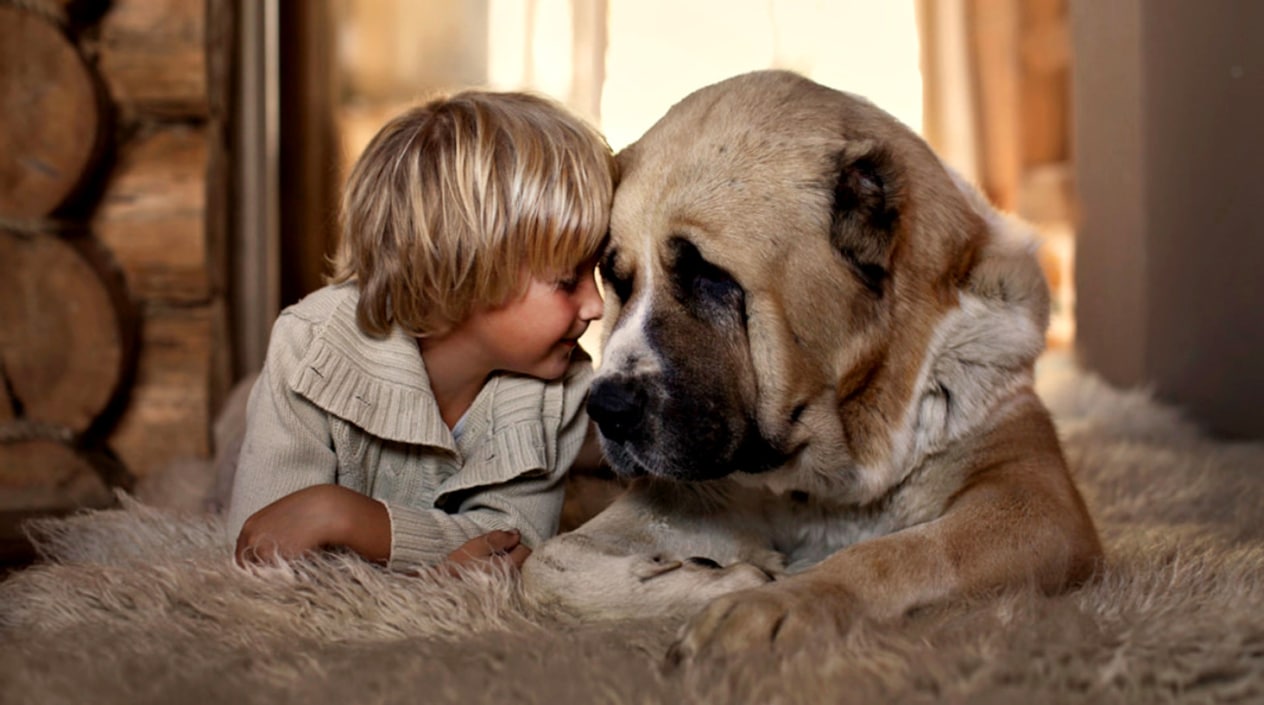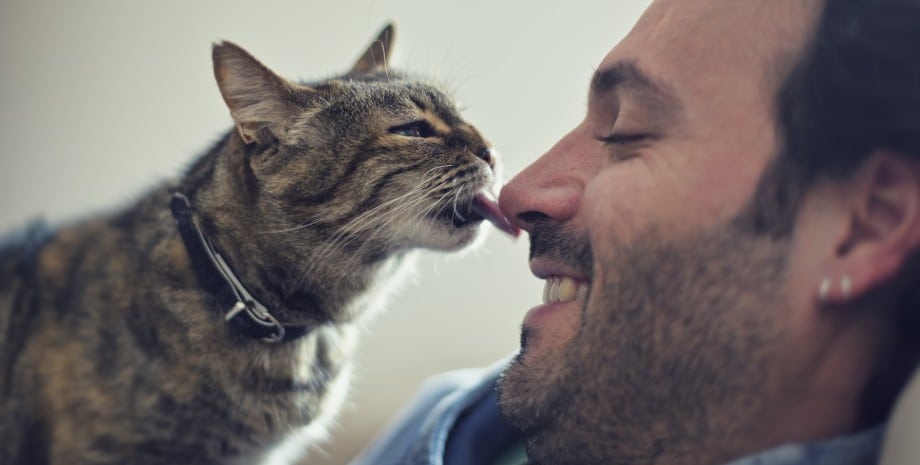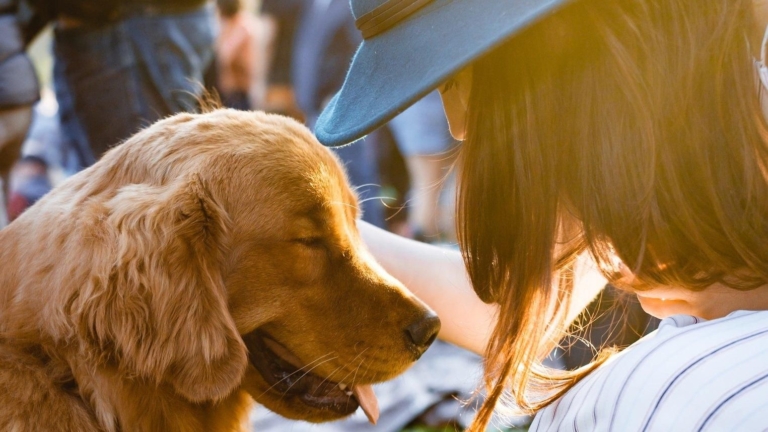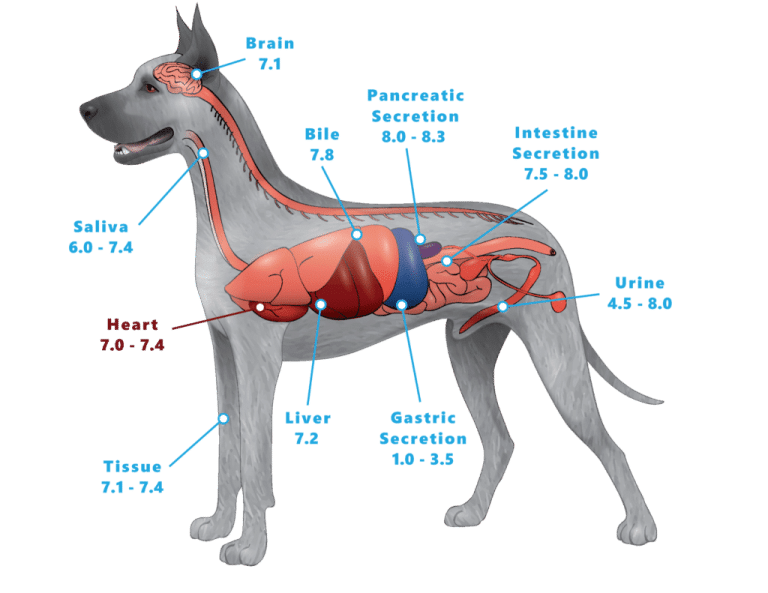Pets have always been a source of love and support, but during difficult life circumstances their role becomes even more significant. Ukrainians were also convinced of this, especially during the war, for whom dogs, cats and other pets became a powerful emotional support. Today we will talk about the healing power of four-legged friends.

How exactly do pets positively affect the psychological state of their owners?
- Reduce stress and anxiety. War brings uncertainty, panic and fear. People who are forced to take shelter during air raids often report that their pets help them to distract and calm them down. This is due to the fact that when interacting with an animal, the human body begins to produce more hormones of happiness (serotonin and dopamine) and less cortisol – the stress hormone.
- They maintain an emotional connection. Because of the war, many Ukrainians are forced to leave their homes and live far from their relatives. In such conditions, animals become the best friends who are always there, even when it seems that the whole world is falling apart. They physically and mentally help a person to overcome emotional difficulties associated with depression, the loss of a loved one or a feeling of hopelessness. For example, the dog Patron, who works as a sapper with the DSNS team, not only helps save lives, but also supports the morale of people around him.
- Help maintain a daily routine. Dogs need regular walks, feeding and attention, so owners are forced to follow these routines, even when the environment is chaotic. It helps maintain a sense of normalcy.
- Increase the level of physical activity. Dog owners are usually more physically active, because regular walks with their pets become part of their daily routine. And this directly translates into a lower risk of heart disease, including lower blood pressure and heart rate.
- Improves social connections. Pets help people to establish contacts with others. For example, during a walk with a dog, you can meet other owners, and the common love for animals often becomes a reason for conversation. This is especially helpful for people with social anxiety who find it difficult to make new friends.
- Strengthen children’s mental health. Interacting with animals helps children overcome fears, reduces stress and even improves cognitive abilities. They become more empathetic, friendly and responsible.


How can pets react during the emotional experiences of their owners?
Pets are sensitive to changes in behavior, voice and even the smell of a person, which allows them to recognize when their owners are experiencing stress, anxiety or sadness. Dogs often become more attentive and may follow the person, lick, lie next to them, or try to entertain. Cats can either show increased tenderness or, on the contrary, withdraw if they feel strong emotional discomfort. Other animals, such as birds or rodents, are also capable of changing their behavior – for example, becoming quieter or more active depending on the situation.
Are animals capable of emotional burnout?
Yes, to a certain extent, pets can experience emotional stress if they are constantly around owners who are depressed or in a state of crisis. This can manifest itself in the form of changes in behavior (aggressiveness, passivity, hyperactivity), loss of appetite, decreased interest in games, excessive sleep or anxiety. To restore balance, the owner should try to maintain a routine. The animal will feel more confident if its daily routine is stable and does not depend on the mood and emotional state of the person. It is better to continue the usual interaction without raising the tone in communication and maintain social connections with other animals during walks. And, of course, it is necessary to increase physical activity, the number of games and hugs with a pet, because all this will help to increase the level of hormones of happiness. It is worth remembering that owners are support for their pets, and vice versa.

The therapeutic role of animals is zootherapy
“Pet therapy” programs, where animals help patients in hospitals and rehabilitation centers, are quite popular in the world. These can be dogs, cats, rabbits, guinea pigs, horses or dolphins. There are even such concepts in psychology as “dog therapy”, “cat therapy”, “goat therapy”. It all depends on the needs of the patient and his condition.
During the war in Ukraine, dogs became the most widespread therapists, although this direction is quite young in our country and is still in the process of its formation. But dogs are already helping in the rehabilitation of soldiers, displaced persons and children. For example, in hospitals they support patients who have experienced traumatic events. In the frontline regions, children are helped to overcome fear and anxiety after the bombings. In military hospitals, dogs take part in the moral and physical recovery of wounded soldiers.

What dog breeds make the best therapists?
Not all breeds of dogs are suitable for this role, because the success of therapy depends on the character of the dog and its upbringing. A therapy dog must be calm, patient, friendly, sensitive to a person’s mood swings, and also be adapted to non-standard situations that may occur in life. You should also pay attention to the size of the animal. For certain patients, this is extremely important. For example, to work with children, you should choose a large breed of dog in view of the possible uncontrolled actions on the part of the child, which can cause harm to a smaller dog. So catch our TOP 5 therapy dogs:
- The Labrador Retriever has a calm nature, patience, and empathy, making it an ideal dog to work with children, the elderly, or emotionally traumatized patients.
- The Golden Retriever’s friendliness makes it a great companion for people with PTSD, depression, or anxiety.
- Although associated with police or security work, the German Shepherd is also an excellent therapist. Intelligence and devotion allow the dog to work with people who need constant support.
- The Cavalier King Charles Spaniel has a gentle and sensitive nature, which is important in therapy with children, people with depression or lonely elderly people.
- Border collies work well in therapy for active people or children with autism spectrum disorders, helping them develop social skills and interaction.
Summing up, we can say that taking into account all the responsibility that falls on the shoulders of the owner when starting a pet, he receives unconditional love and support of his pet at any moment of his life: whether it is a happy or sad page. It is thanks to pets that many Ukrainians have retained the ability to be productive, recover their mental health, and rally themselves to fight on. That is why in our country there is such a strong volunteer movement to save animals, the rapid development of “pet therapy” and the growing number of pets taken from shelters and kennels. Love your four-legged friends, cherish the time spent with them and protect them!









